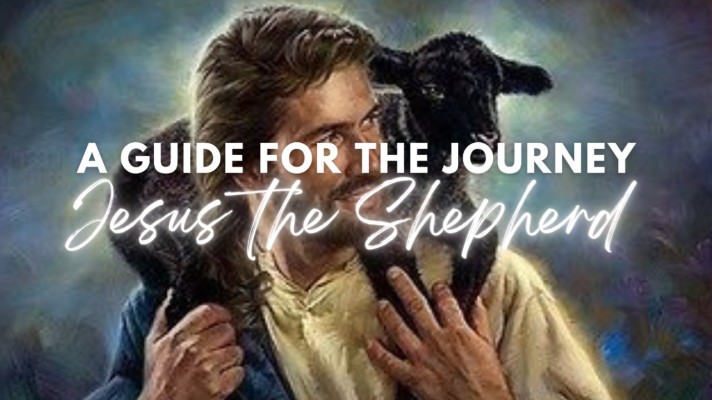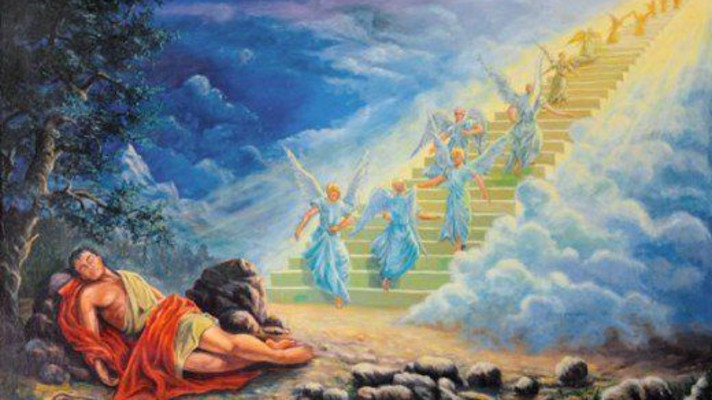“The Lord is my shepherd; I shall not want” (Ps. 23:1, NKJV).
Some children were asked to draw a picture of God. Without exception, each one drew a picture with a heart somewhere in it. When asked why, they declared unanimously that God is love. It was as simple as that.
It is easy to have a good opinion of God and His purposes when everything is going well. But as we grow older and life becomes harder and more complicated, our view of God often changes. God doesn’t change, of course (Heb. 13:8, James 1:17), but we do.
Because of the pastoral lifestyle of the people in Old Testament times, Psalm 23 uses the image of a shepherd to describe the way God cares for us. The symbol of a shepherd is used for God—in both the Old Testament and the New Testament. It’s a wonderful picture and one that is changeless, too. Before we look at Psalm 23, let’s survey how different Bible writers understand the work and character of the Shepherd throughout the Bible.
Supplemental Notes
As the shepherd loves his sheep, and cannot rest if even one be missing, so, in an infinitely higher degree, does God love every outcast soul. Men may deny the claim of His love, they may wander from Him, they may choose another master; yet they are God’s, and He longs to recover His own. He says, “As a shepherd seeketh out his flock in the day that he is among his sheep that are scattered; so will I seek out My sheep, and will deliver them out of all places where they have been scattered in the cloudy and dark day.” Ezekiel 34:12.
In the parable the shepherd goes out to search for one sheep—the very least that can be numbered. So if there had been but one lost soul, Christ would have died for that one.
The sheep that has strayed from the fold is the most helpless of all creatures. It must be sought for by the shepherd, for it cannot find its way back. So with the soul that has wandered away from God; he is as helpless as the lost sheep, and unless divine love had come to his rescue he could never find his way to God.—Christ’s Object Lessons, p. 187.
However much a shepherd may love his sheep, he loves his sons and daughters more. Jesus is not only our shepherd; He is our “everlasting Father.” And He says, “I know Mine own, and Mine own know Me, even as the Father knoweth Me, and I know the Father.” John 10:14, 15, R. V. What a statement is this!—the only-begotten Son, He who is in the bosom of the Father, He whom God has declared to be “the Man that is My fellow” (Zechariah 13:7),—the communion between Him and the eternal God is taken to represent the communion between Christ and His children on the earth!
Because we are the gift of His Father, and the reward of His work, Jesus loves us. He loves us as His children. Reader, He loves you. Heaven itself can bestow nothing greater, nothing better. Therefore trust.—The Desire of Ages, p. 483.
While we review, not the dark chapters in our experience, but the manifestations of God’s great mercy and unfailing love, we shall praise far more than complain. We shall talk of the loving faithfulness of God as the true, tender, compassionate shepherd of His flock, which He has declared that none shall pluck out of His hand. The language of the heart will not be selfish murmuring and repining. Praise, like clear-flowing streams, will come from God’s truly believing ones. “Goodness and mercy shall follow me all the days of my life: and I will dwell in the house of the Lord forever.” “Thou shalt guide me with Thy counsel, and afterward receive me to glory. Whom have I in heaven but Thee? And there is none upon earth that I desire beside Thee.” Psalm 23:6; 73:24, 25.—Testimonies for the Church, vol. 6, pp. 367, 368.




